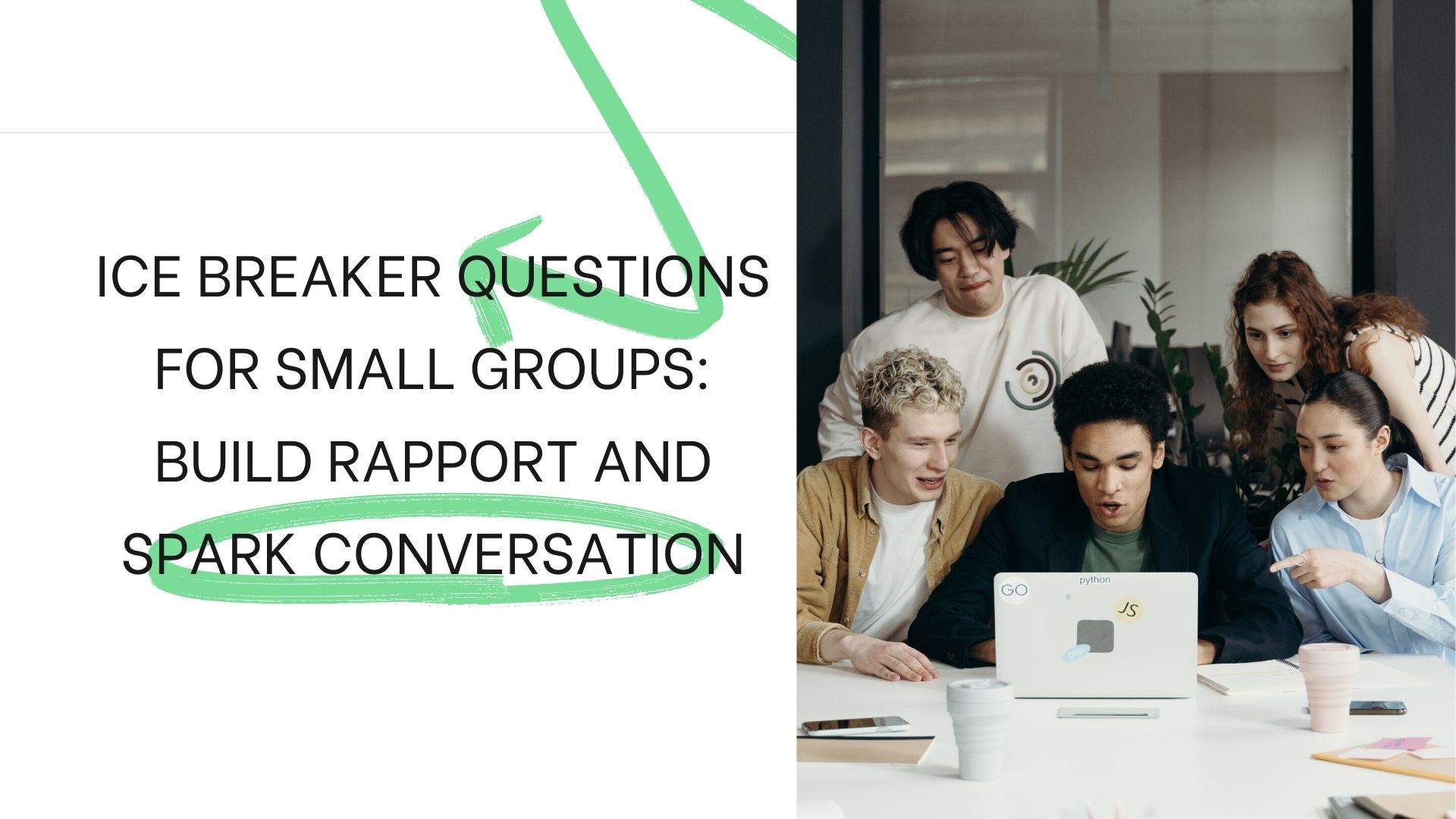Ice breaker questions are a simple yet effective tool to set the tone for meetings, workshops, or social gatherings. They help break down barriers, encourage interaction, and create a comfortable environment for participants. When working with small groups, it’s particularly important to choose questions that are engaging and tailored to the group’s dynamics. Whether you’re leading a team meeting, hosting a study group, or organizing a casual get-together, these ice breaker questions can help build rapport and spark meaningful conversations.
Best Ice Breaker Questions for Small Groups
Here’s a list of effective ice breaker questions designed specifically for small groups. These questions are divided into categories to help you choose the best ones for your situation.
1. Fun and Lighthearted Questions
These questions are great for setting a relaxed and playful tone:
“If you could have any superpower, what would it be and why?”
This question taps into creativity and reveals a bit about each person’s personality.
“What’s the weirdest food you’ve ever tried?”
A question like this can lead to funny stories and interesting conversations about travel or adventurous eating.
“If you could live in any fictional world, where would you choose?”
This is a great way to dive into participants’ favorite books, movies, or games, making it perfect for groups with diverse interests.
2. Get-to-Know-You Questions
Use these questions to help participants learn more about each other:
“What’s one thing you’re really good at that not many people know?”
This question gives everyone a chance to share their hidden talents or hobbies.
“What’s the best piece of advice you’ve ever received?”
Sharing advice can spark deeper conversations about life experiences and values.
“If you could have dinner with any historical figure, who would it be and why?”
This question opens up dialogue about interests in history, leadership, and personal heroes.
3. Reflection and Personal Insight Questions
These questions encourage participants to reflect and share more about their personal experiences:
“What’s the most challenging thing you’ve accomplished this year?”
This question invites participants to share their recent achievements and challenges, fostering a sense of pride and empathy within the group.
“If you could go back in time and give your younger self one piece of advice, what would it be?”
This prompts thoughtful reflections that can reveal personal growth and life lessons.
“What’s one goal you have for the next year?”
Discussing future aspirations helps to build a sense of support and accountability within the group.
4. Team-Building and Work-Related Questions
Perfect for small work groups or teams, these questions can build professional rapport:
“What’s one skill you’d like to learn or improve in your job?”
This question can lead to discussions about professional development and shared learning opportunities.
“What’s your favorite project you’ve worked on and why?”
Sharing positive work experiences can build camaraderie and highlight the team’s strengths.
“If our team could achieve one thing this year, what would you want it to be?”
Aligning on team goals fosters a sense of unity and shared purpose.
5. Creative and Thought-Provoking Questions
For groups that enjoy deeper conversations, these questions encourage creative thinking:
“If you could instantly become an expert in anything, what would it be?”
This question reveals personal interests and aspirations, sparking discussions about skills and passions.
“What’s the best book you’ve read recently, and why did you like it?”
Book recommendations can lead to discussions about personal interests, learning, and inspiration.
“What’s one thing you would change about the world if you could?”
A thought-provoking question that encourages participants to share their values and vision for the future.
Tips for Using Ice Breaker Questions Effectively
Tailor Questions to Your Group: Consider the group’s background, interests, and the purpose of your meeting when choosing questions. For professional settings, keep questions more focused on work and skills, while social gatherings can handle more personal or playful topics.
Keep It Light: Start with lighthearted questions to set a relaxed tone. Avoid overly personal or controversial topics that could make participants uncomfortable.
Encourage Participation: Make sure everyone has a chance to answer. In small groups, it’s easier to go around and let each person contribute, which helps build a sense of inclusion.
Be Ready to Share: As the facilitator, be prepared to answer the questions yourself. Your willingness to share sets the tone and encourages others to open up.
Making the Most of Small Group Interactions
Using ice breaker questions in small groups is an excellent way to build rapport, spark meaningful conversations, and set a positive tone for your meeting or event. Whether you’re leading a team meeting, a workshop, or a social gathering, the right questions can make all the difference in creating an engaging and connected group dynamic.
For those who want to capture these valuable conversations and turn them into actionable insights, consider using VOMO AI. With VOMO AI, you can record, transcribe, and analyze group discussions effortlessly, using the Ask AI feature to summarize key points and generate insights from your sessions. It’s an ideal tool for professionals looking to streamline their meeting documentation and enhance team collaboration through advanced AI-driven analysis. Click here to learn how to record and transcribe meeting minutes with VOMO AI.
By integrating thoughtful ice breaker questions and leveraging tools like VOMO AI, you can transform any small group interaction into a productive and enjoyable experience.


